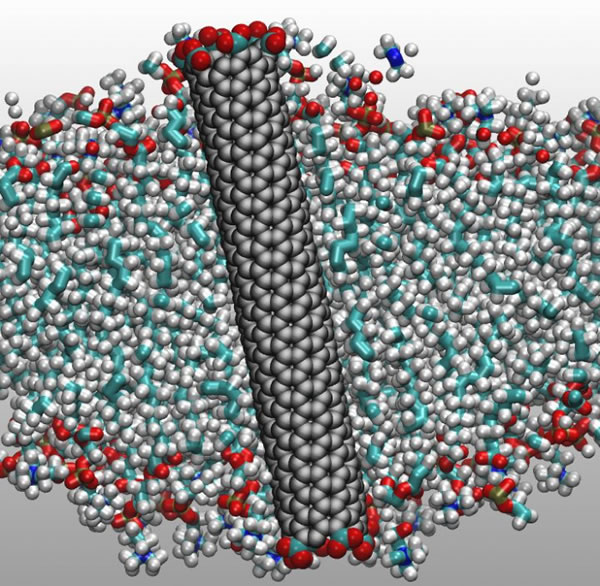According to foreign media reports, scientists have created tiny carbon nanotubes that can filter water very effectively and one day they can help convert seawater into drinking water. According to a study published in the journal Science, this nanotube is similar to some biological proteins used to filter water in living cells, but it is six times more efficient. Although nanotubes cannot currently be used for actual desalination of seawater, researchers say they can successfully filter salty water.

Aleksandr Noy, an associate professor at the University of California, Michaud, said the creation of this nanotube was inspired by a natural protein called aquaporin. Aquaporin is found throughout the body: it is a protein located on the cell membrane that transports water through the cell membrane and filters out ions to keep cells healthy. Aquaporin works by transporting water molecules through only 0.3 nanometer wide channels, basically creating an ultra-fast column of water molecules and filtering out all the ions.
Zuzanna Siwy, professor of physics and astronomy at the University of California, Irvine, said that water channel proteins are difficult to use in artificial filtration systems because proteins are very fragile and difficult to reproduce. So researchers such as Noy decided to use powerful carbon nanotubes. These nanotubes are 0.8 nm wide, just like aquaporins, but filter water 6 times faster than aquaporins. ?
Water channel proteins work slower because they filter out all ions, including protons. To do this, the water molecules flip 180 degrees in the aquaporin channel, and the chemical reaction slows the movement of the molecule. Noy said that carbon nanotubes do not filter out protons, which allows a faster filtration system. ?
Researchers believe that nanotubes can be included in artificial membranes one day, filtering out ions from seawater and converting them into fresh water. Since carbon nanotubes have superior reliability and high efficiency, carbon nanotubes have the potential to reduce the cost of seawater desalination.
A water bath is a laboratory equipment used to incubate samples in a controlled temperature environment. It consists of a container filled with water that is heated to a specific temperature and maintained at that temperature. The sample is placed in a separate container that is submerged in the water bath, allowing for the sample to be heated or cooled to the desired temperature. Water baths are commonly used in biology, chemistry, and medical laboratories for a variety of applications including cell culture, enzyme reactions, and melting point determination.
Water Bath,Laboratory Water Bath,Thermostatic Water Bath,Lcd Constant Temperature Water Bath
Lachoi Scientific Instrument (Shaoxing) Co., Ltd. , https://www.lachoinst.com